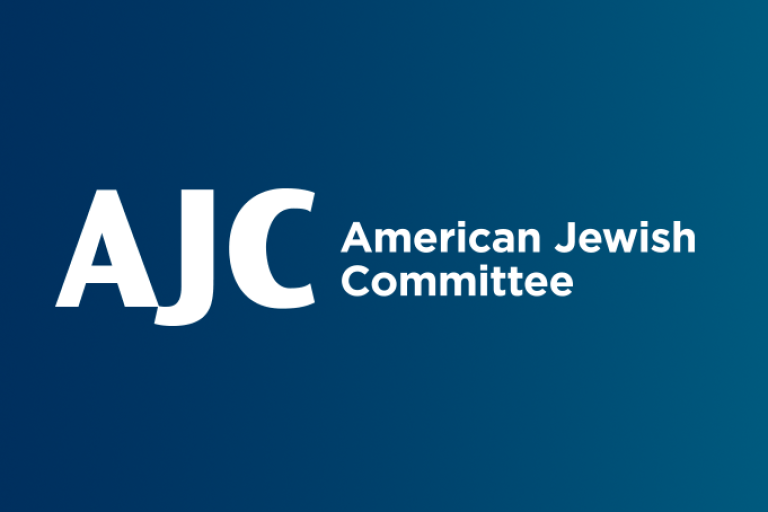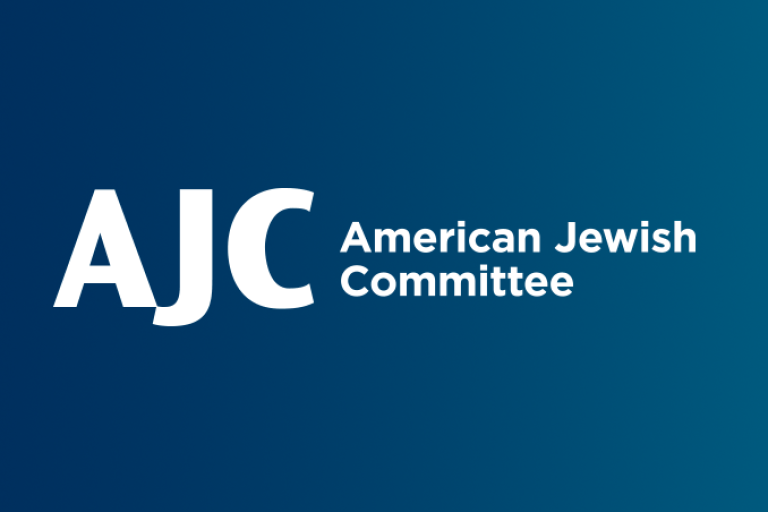July 9, 2020
This week, we hear from Holly Huffnagle, AJC’s U.S. Director for Combating Antisemitism, and Dave Rich, Director of Policy at the UK’s Community Security Trust, on the rise of antisemitic conspiracy theories amid the coronavirus pandemic and following the killing of George Floyd in Minneapolis. Then, we hear an update on the resurgence of the pandemic in Israel from Dr. Yonatan Freeman, an international relations expert and professor of political science at The Hebrew University of Jerusalem.
Holly Huffnagle, AJC’s new U.S. Director for Combating Antisemitism, and Dave Rich, Director of Policy at the UK’s Community Security Trust, joined People of the Pod for a discussion on the rise of antisemitic conspiracy theories amid the coronavirus pandemic and following the killing of George Floyd in Minneapolis.
Huffnagle discussed the importance and timeliness of her new position, referencing the dramatic uptick in antisemitism and instances of antisemitic violence, from Pittsburgh to Poway. She cited results from AJC’s landmark survey on antisemitism in America, which showed that roughly nine out of ten American Jews say that antisemitism is a problem in the U.S., with 84% saying it has increased in the past five years.
“The data is hard to ignore,” she said.
In discussing the issue of antisemitic conspiracy theories, both Rich and Huffnagle agreed that the far left and the far right have one thing in common: the spread of conspiracy theories about Jews.
“Nowadays what we are seeing is a much wider recognition of the danger that these theories can pose to the whole of society,” said Rich.
Conspiracy theorists aim to place blame on someone or something that is unrelated to the source of the problem, Huffnagle said. She described how people often believe conspiracy theories, even after being told that they are false. After hearing the same lie repeatedly, people begin to embrace it because it sounds familiar. This reaction is called the “illusory truth effect.”
Rich commented on how conspiracy theories in the UK are easily transferable across countries and across crises.
“As soon as the coronavirus pandemic began… we started to see the more extreme fringes of the far right spreading conspiracy theories -- either that the coronavirus was a hoax invented by Jews or that it was real and being spread by Jews,” said Rich.
Rich described two specific conspiracy theories being spread in the UK: that Jews were behind the death of George Floyd as a means of dividing American society and that the Minneapolis police force learned the technique that killed George Floyd from Israeli police. These theories are spreading on both fringes of the left and right.
“The thing that glues them together… is that there is this vast conspiracy and everything that happens in the world can be explained through conspiracy theories," Rich said. "And somewhere… either centrally, or at the fringes of every conspiracy theory, are Jews."
The tenure of Jeremy Corbyn as leader of the UK’s Labour Party was plagued by a plethora of antisemitism-related scandals. Rich said that the Labour Party’s messaging has been more encouraging since Corbyn was replaced by Keir Starmer earlier this year. One of Starmer’s first actions as party leader was to issue an apology to the Jewish community for past mistreatment, and a commitment to rooting out antisemitism in his party.
When asked how to best combat conspiracy theories, Huffnagle said the first step is to call it out and ask our leaders to do so as well.
“People are persuaded by those they know and those they trust,” said Huffnagle. Therefore, when we are not having conversations with friends and family who possess these beliefs, we do not stop the spread of these false theories.
Huffnagle also noted that we often go after antisemitism without first addressing the true root causes. “The biggest way to combat conspiracy theories is by having a stable and transparent democracy” since conspiracy theories erode trust with government and its citizens, Huffnagle said.
The internet is a key source of the spread of antisemitism and conspiracy theories. Both guests agreed that social media platforms need to take more responsibility for the promotion of credible information and halting the spread of misinformation from non-credible sources. In response to the growth of online hate, AJC recently created and released Translate Hate, a glossary of antisemitic terms and tropes.
“Freedom of speech isn’t necessarily freedom of reach,” Huffnagle said.





